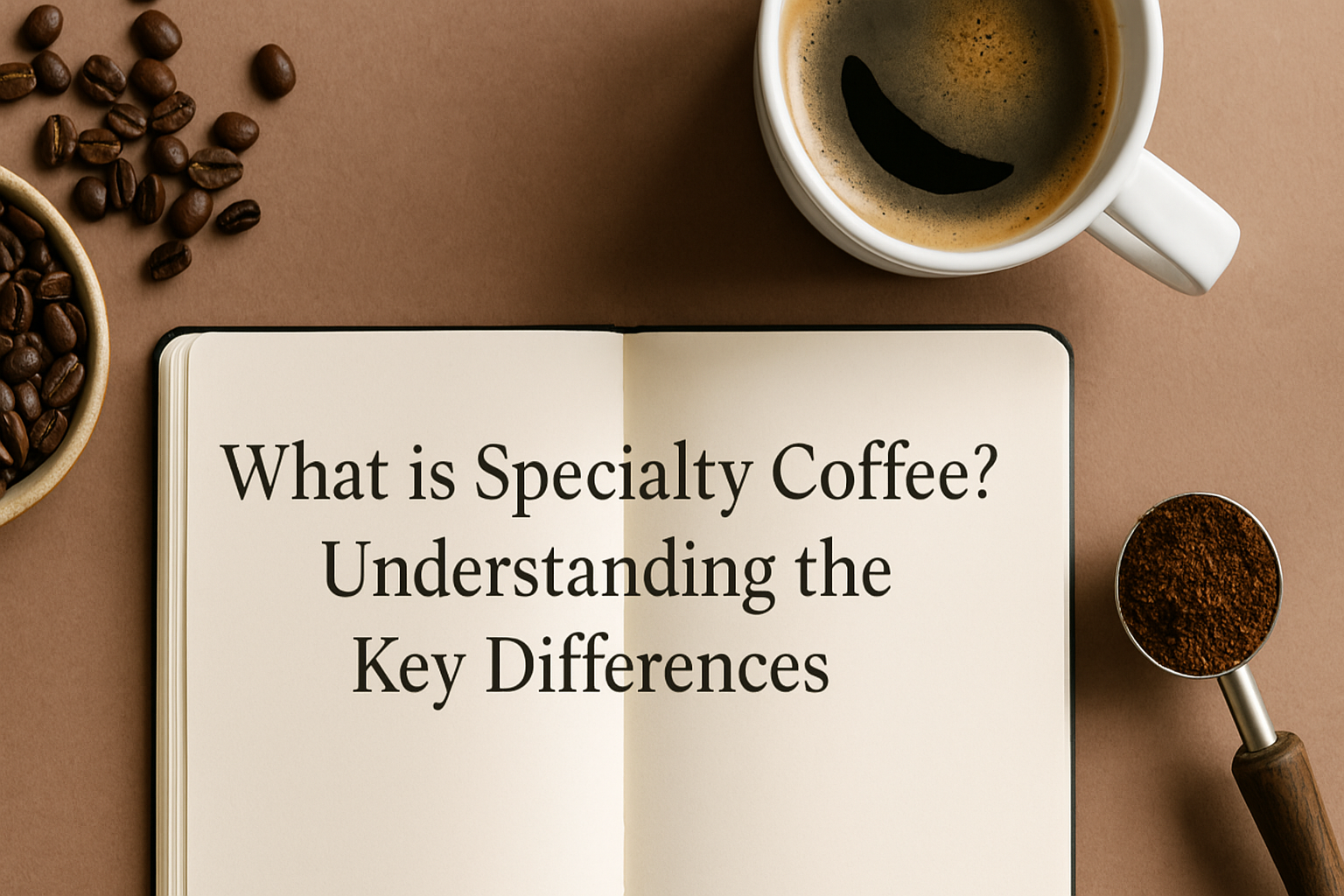“Specialty coffee” has become a buzzword in cafés and among coffee enthusiasts. But what sets it apart from regular coffee? This article will explain what specialty coffee is, how it differs from commodity coffee, and why it matters to producers and consumers alike.
What is Specialty Coffee?
Specialty coffee refers to coffee that has been graded 80 points or higher on a 100-point scale by certified coffee tasters, known as Q Graders, following standards set by the Specialty Coffee Association (SCA).
Core Elements:
- High-quality beans: Typically Arabica, grown under optimal conditions.
- Traceability: Detailed information about origin, farm, and processing.
- Meticulous processing: Ensures purity and preserves flavors.
- Ethical sourcing: Often involves direct trade and sustainable practices.
How is Specialty Coffee Different from Regular Coffee?
1. Quality Standards
- Specialty coffee: Must meet rigorous criteria for size, defects, and flavor.
- Commodity coffee: Prioritizes quantity over quality, often blended to mask defects.
2. Flavor Profile
- Specialty coffee showcases unique and complex flavors related to the region’s terroir, processing method, and roasting profile.
- Commodity coffee typically has a more uniform, basic flavor.
3. Sourcing and Transparency
- Specialty coffee offers full traceability: country, region, farm, and even farmer’s name.
- Regular coffee is often sourced anonymously through commodity markets.
4. Roasting
- Specialty coffee is roasted to highlight origin flavors.
- Commodity coffee is often dark roasted to create consistency and mask defects.
5. Brewing and Preparation
- Specialty coffee is commonly brewed using manual methods: pour-over, AeroPress, Chemex.
- Commodity coffee is usually pre-ground for drip machines or instant coffee.
The Specialty Coffee Supply Chain
- Farmer: Grows and processes high-quality coffee.
- Exporter: Helps bring the product to international markets.
- Roaster: Develops roast profiles to highlight unique flavors.
- Barista: Prepares coffee with precision and care.
- Consumer: Enjoys a coffee experience that connects them to the entire supply chain.
Why Specialty Coffee Matters
For Producers:
- Higher income: Premium prices for quality coffee.
- Recognition: Personal acknowledgment of their work.
- Sustainability: Incentives for environmentally friendly practices.
For Consumers:
- Better flavor: More complex and enjoyable cup.
- Transparency: Knowledge about where and how the coffee was produced.
- Ethical impact: Support for fair labor and environmental stewardship.
How to Identify Specialty Coffee
- Look for detailed origin information on the packaging.
- Check for roast date and flavor notes.
- Research the roaster’s sourcing practices.
- Buy whole beans and grind just before brewing for maximum freshness.
Common Misconceptions
| Misconception | Reality |
|---|---|
| Specialty coffee is a marketing term | It is an industry-standard with defined quality benchmarks |
| Only Arabica is specialty coffee | Most specialty coffee is Arabica, but quality is determined by grading, not species alone |
| Specialty coffee is always expensive | While it costs more than commodity coffee, it offers better value for quality and ethical sourcing |
Final Thoughts
Specialty coffee represents the pinnacle of coffee quality, combining artistry, science, and ethical practices. Whether you’re a casual coffee drinker or a passionate enthusiast, exploring specialty coffee can deepen your appreciation for the craft and the people behind every cup.
